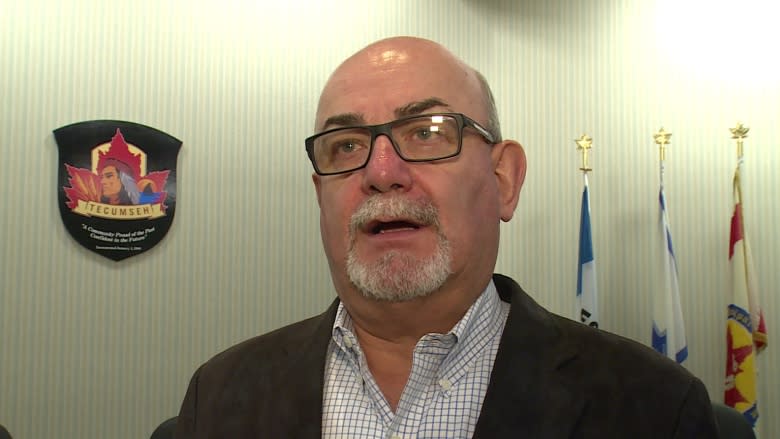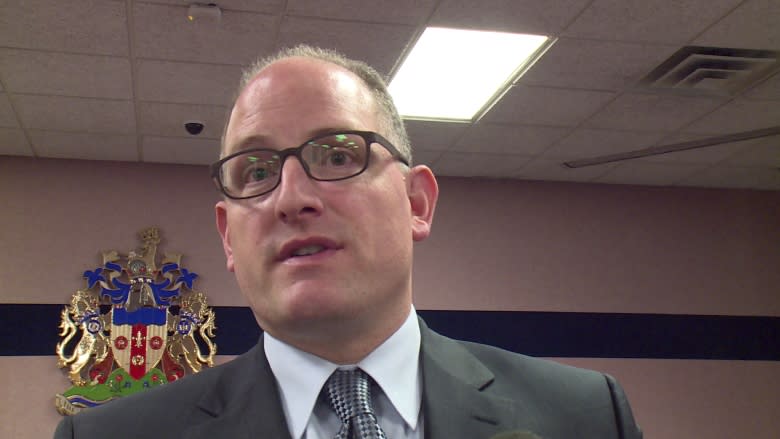Community organizations asked to opt out of multi-million bingo lawsuit
The mayors of Windsor and Tecumseh launched a public awareness campaign this weekend urging charitable organizations to opt out of class-action lawsuits that could leave the two communities on the hook for $70 million.
Launched by the ALS Society of Essex County and Belle River District Minor Hockey Association, the lawsuits allege Windsor and Tecumseh charged excessive fees for bingo licences.
Both the ALS Society and the Community Gaming and Entertainment Group are listed as plaintiffs in the suit against Windsor. In the suit against Tecumseh, the hockey association is listed as a plaintiff alongside the Essex County Dancers Incorporated as well as the Community Gaming and Entertainment Group.
The groups are seeking compensation for every organization that paid licence fees for bingo and charitable gaming events dating back to 1993. Every charitable organization that paid the fees is automatically included in the lawsuit unless they specifically opt out, according to a joint news release issued by the two mayors Saturday.
Tecumseh Mayor Gary McNamara recognizes the daunting challenge of trying to kill the lawsuit.
"I believe there are many charitable organizations across our communities that really are unaware of what's happening," he said. "We want to make sure that all of the charitable organizations that have had at least one bingo since 1993 are aware of what this means."
Defining licence fees
The lawsuits claim the excessive bingo fees are actually illegal taxes and every penny charged to the organizations should be repaid.
The lawsuits, filed against each municipality by lawyers from Lerners LLP, are almost identical and will likely be seen as test cases for other cities, said McNamara, who is also president of the Association of Municipalities of Ontario.
If successful, the lawsuits could redefine how local governments charge for bingo licences. Many more legal battles could be on their way in other communities, according to McNamara.
"All municipalities in Ontario that license and operate bingos and charitable organizations would be subject to this lawsuit eventually," McNamara said.
Both municipalities plan to fight the lawsuits to the end.
"We believe those are not excessive taxes," McNamara said. "Those are our fees that are required to administer ... the licences."
Spreading the word
Spreading the word to each organization will be a challenge, considering Windsor alone has more than 900 different groups that have paid for bingo licences over the past 23 years.
Neither municipality can meet with the groups directly without someone from Lerners present, according to Dilkens.
"But we are allowed to do a campaign like this during the opt-out period, so that's why you see [us on] radio, TV, Internet and social media really trying to draw attention to this issue," he said.
A successful lawsuit would financially affect the communities come budget time, considering Tecumseh would be on the hook for $7 million and Windsor could end up possibly paying back more than $60 million.
Dilkens used city council's recent decision to support a $100 million levy for a new mega-hospital as an example of how long it takes to generate that kind of cash.
"It would have a real significant impact on the city of Windsor and its taxpayers for a long time," he said of the potential of having to pay out millions of dollars.
Response to opt-out campaign
The head of the Windsor Regional Hospital Foundation wants to remove the organization's name from the lawsuit.
The foundation board of directors plans to meet in the coming days to discuss their options. They discovered just last week they were part of the lawsuit, explained executive director Ron Foster.
When they meet, Foster will likely recommend the foundation opt out.
"We don't feel that the fees overall were excessive," he said. "I think we would recommend opting out, but that is the board's decision."
Lawyers from Lerners LLP, the firm that filed the lawsuit, don't approve of the mayors asking organizations to opt out.
"I don't think it's appropriate," lawyer Peter Kryworuk told Radio-Canada.
He did not want to comment about the specifics of the lawsuit, but said it would still go ahead, even if groups opt out.



